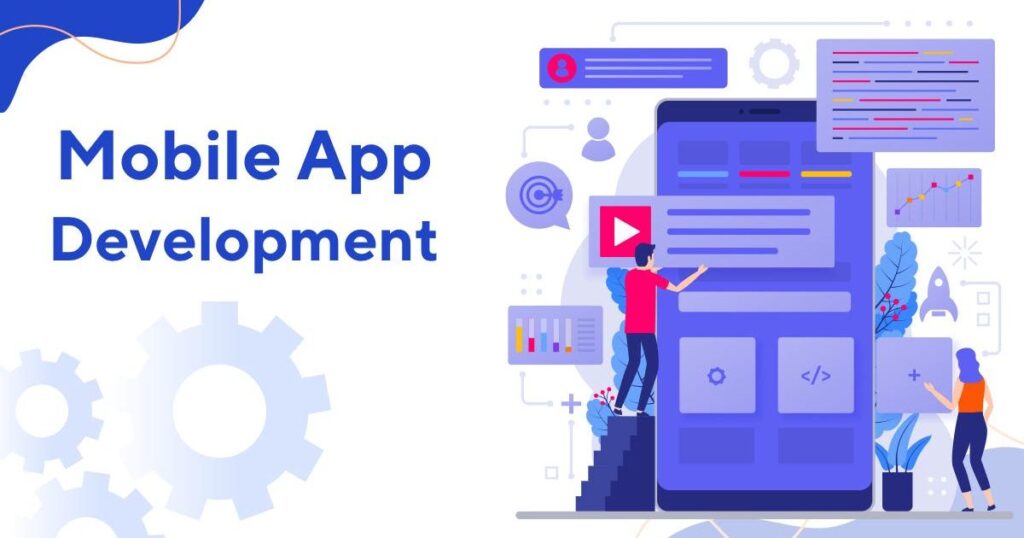In today’s digital era businesses must embrace strategies that not only drive growth but also optimize efficiency. A lean business model is a prime example of such a strategy focusing on waste reduction, continuous improvement and delivering customer value. Combining this model with a mobile first approach takes it to another level allowing businesses to adapt seamlessly to evolving customer needs.
Leveraging mobile solutions companies can improve efficiency, reduce costs and offer personalized experiences to their customers. In this blog we’ll uncover how going mobile exemplifies a lean business model and explore its impact on modern businesses particularly small businesses and startups. From real time data usage to optimized resource allocation, discover why mobility is no longer optional but a necessity.
What is a Lean Business Model?
The lean business model originated from Toyota’s production system and emphasizes the elimination of non value adding processes just in time production and delivering maximum value to customers. Its core principles include:
- Waste Reduction: Eliminating unnecessary steps and focusing only on activities that add value.
- Continuous Improvement (Kaizen): Regularly enhancing processes to improve performance.
- Customer Value Focus: Designing processes that deliver precisely what the customer needs.
- Agility: Responding quickly to market changes and customer feedback.
For example a restaurant adopting a lean model might minimize inventory, reduce costs and adjust menus based on real time customer demand. Similarly small companies and startups often benefit from lean models due to their limited resources and need for flexibility.
The Rise of Mobile and Lean Synergy

The surge in mobile usage has created a golden opportunity for businesses to integrate mobile solutions with lean principles. Today smartphone activity accounts for over 50% of online interactions and this trend is only growing.
For lean businesses mobile technology aligns perfectly with their goals. A mobile optimized website enhances customer engagement providing a seamless experience across devices. Mobile apps further strengthen client connections offering tailored services and instant interactions. With tools like location based services businesses can deliver highly targeted promotions ensuring they meet specific customer demands.
Mobile behavior also highlights the need for businesses to adopt a responsive design that adapts to diverse devices. By prioritizing responsive site creation and investing in mobile SEO companies not only improve their online presence but also optimize operations for better audience interaction.
Mobile First Approach: Key Benefits in a Lean Framework
- Streamlined Operations and Waste Reduction
Mobile tools such as productivity apps and business software automate repetitive tasks reducing the burden on employees. For example inventory systems powered by mobile apps can track stock levels in real time eliminating the risk of overstocking or under stocking. - Real Time Data for Informed Decision Making:
Mobile technology facilitates real time data collection allowing businesses to make swift data driven decisions. A retailer using a mobile app can instantly analyze purchasing trends and adjust their inventory accordingly embodying just in time production principles. - Enhanced Customer Engagement and Personalization
With mobile payment solutions like Apple Pay and Google Wallet businesses provide customers with fast secure transactions. Pair this with personalized promotions delivered through social media strategies and companies can significantly enhance customer satisfaction and loyalty. - Optimized Resource Allocation and Lower Overhead Costs
The mobile first approach eliminates the need for excessive physical infrastructure. Remote work tools powered by cloud computing further reduce operational costs enabling businesses to allocate resources more effectively.
Inside the Life of Eric Weinberger’s Wife: Profile and Personal Insights
Case Studies: Success with Mobile Mastery in Lean Models

- Retail Industry
A leading clothing retailer adopted a mobile friendly website and introduced an app with responsive design. By integrating GPS marketing they delivered personalized promotions to nearby customers resulting in a 30% boost in customer engagement. - Food Trucks:
Food trucks exemplify lean business models perfectly. With mobile payment solutions and geolocation tools they minimize inventory, reduce waste and adapt quickly to changing customer demands. - Local Enterprises:
A small cafe used mobile tools like workflow optimization apps to streamline daily tasks. By promoting through Instagram marketing they built consumer loyalty and increased foot traffic.
Challenges and Solutions in Adopting Mobile-First Lean Models
Adopting a mobile first strategy isn’t without its hurdles. Businesses often face integration challenges, data protection concerns and resistance to change.
Solution 1: Using a VPN security system ensures encrypted connections and safeguards customer information.
Solution 2: Providing training programs helps employees embrace mobile optimization tools.
Solution 3: Collaborating with experts in app development and responsive design ensures smooth implementation.
Future Trends: Mobile and Lean Innovations

The future of lean businesses lies in advanced mobile technology. Emerging trends such as 5G AI and IoT are set to revolutionize how businesses operate. Spatial analytics combined with proximity promotions will enable ultra personalized marketing campaigns. Additionally sustainability focused mobile apps will align with eco conscious customers further enhancing value delivery.
Frequently Asked Questions
What is a lean business model?
A lean business model focuses on reducing waste, improving efficiency and maximizing customer value through continuous improvement.
How does going mobile support a lean business model?
Going mobile helps streamline operations, reduce costs and enhance customer engagement by using tools like apps, mobile payments and real time data analysis.
Why is a mobile first approach important?
A mobile first approach ensures businesses cater to the growing number of mobile users improving customer satisfaction and staying competitive.
How do food trucks showcase lean principles?
Food trucks minimize waste use just in time production and leverage mobile payments and geolocation tools to adapt to customer needs efficiently.
Conclusion: Mobile Mastery in Lean Business Models
The fusion of mobile technology and lean principles is reshaping how businesses operate. Leveraging real time data enhancing customer engagement and adopting a mobile first approach companies can achieve agile responses to market shifts. As more organizations embrace mobile optimization those that lead the charge will not only survive but thrive in the competitive landscape.
With smartphone focus responsive site design and personalized services the road to success in a lean mobile first world is clear. Mobile mastery is no longer optional and it’s essential for businesses aiming to stay ahead.


